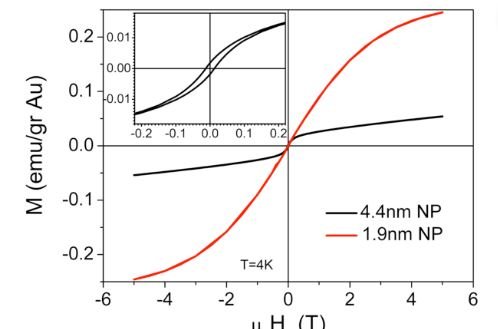Gold is one of those metals with fascinating properties. Even though gold is conductive, it is not magnetic. It is actually among the other non-magnetic metals such as aluminum, copper and silver.
So, we will explore another fundamental aspect of gold magnetism and other vital properties.
Does Gold Possess Magnetic Properties?
Gold in its pure state cannot be categorized as magnetic. It does however exhibit magnetic tendencies linked with diamagnetic materials characterized by its slight repulsion in the presence of a magnet.

Ideally, diamagnetic materials are known for their unique “magnetic” properties. That is, when you subject such materials to a magnetic field they can be magnetized. Interestingly, their magnetization occurs in an opposite direction from the magnetic field in action.
Magnetic Properties of Gold Alloys
Gold in its pure form has no practical properties that indicate its magnetic ability. When fused with other metals it gains a measure of magnetism. This process however requires fusing the pure gold with other magnetic elements.
At least twenty percent of its original composition should be replaced by a magnetic element like; palladium, platinum, iron, cadmium, nickel, and silver.
The magnetic characteristics of these elements are then displayed for example an iron fusion would cling to a magnet.
The magnetism gained from combining these elements may vary in degrees depending on other factors. These factors include atmospheric temperature which increases or lessens the force of attraction. These alloys include white gold, 10k gold, and others typically included in jewelry.

Unpaired Electrons in Gold Vs Gold Magnetic Properties
The magnetic ability of elements stems from the presence of unpaired electrons. These unpaired electrons align themselves toward a stronger outer magnetic field, this movement is what creates magnetic dipoles
Gold does possess unpaired electrons but unlike magnetic elements, these electrons have a shared atom. The singular atom present will therefore result in only one unpaired electron making the pure metal highly electronegative.
The single unpaired electron instead of the pair required is what contributes to the metal’s lack of magnetic properties.

In fact, gold magnetism is completely different from the ferromagnetic materials. The most common ferromagnetic materials are:
- Iron
- Cobalt
- Nickel
These are some of the main magnetic metals. Alloying gold with magnetic metals can contribute to some magnetic properties.
Of course, there are other rare-earth metal materials such as samarium-cobalt and neodymium.
FAQs
Can Magnets Attract Gold?
Gold in its pure state is a diamagnetic metal which means that when exposed to a magnetic field its reaction would be a slight repulsion. Its behavior when exposed to magnets is completely different from those you can see in ferromagnetic materials.
Can you make Gold Magnetic?
You can make gold magnetic by altering its makeup to constitute at least twenty percent of a magnetic element.
Is Gold the Only Non-magnetic Metal?
There are several other non-magnetic metals. These metals include brass, lead, silver, copper, and aluminum.
Is Magnetism a Good Test for Gold?
When testing out the purity of alloyed gold the magnetism can be employed as one of the testing parameters. However, this will not provide you with accurate or tangible results aside from ascertaining that there are other elements present.
Conclusion
Gold in itself can therefore not be considered magnetic elements. Its alloys on the other hand may display magnetic properties depending on the other elements’ magnetic disposition.
More resources:
Gold Magnetism – Source: UMD
Gold Melting Point – Source: HM


